Photo gallery Wisconsin Idea Seminar: UW faculty and staff explore the state
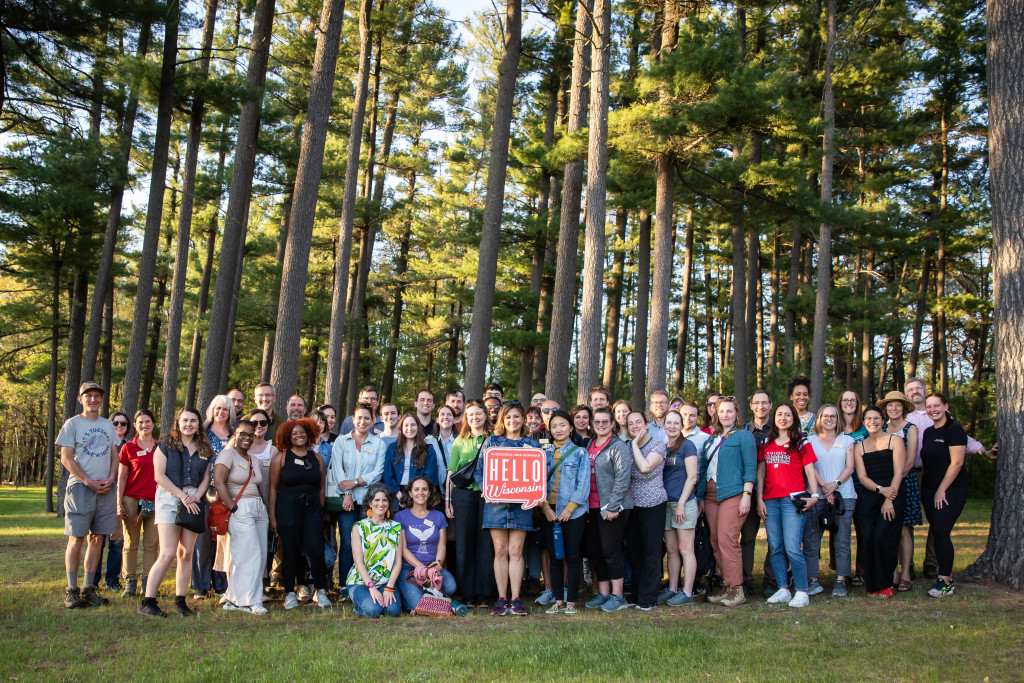
Fran Puleo Moyer, associate director of outreach programs for UW–Madison’s State Relations, holds the “Hello Wisconsin” sign as the cohort pauses for a group photo with their Stevens Point hosts in Bukolt Park following dinner and a roundtable conversation about growing food and nurturing communities in central Wisconsin. Photo by Catherine Reiland/UW-Madison
Photo essay by Catherine Reiland, assistant vice provost and director of the Wisconsin Idea Seminar. Editing assistance from Kelly Copolo, academic program specialist and assistant for the Wisconsin Idea Seminar.
Forty years ago, in 1985, the Wisconsin Idea Seminar emerged out of the commitment to introduce new faculty and staff to the people and places of Wisconsin. Since then, more than 1,300 University of Wisconsin–Madison employees have made the five-day journey through the state.
In May, 40 members of the 2025 Wisconsin Idea Seminar set off on the Forest + River journey to follow a circular path around Wisconsin, focusing on forest ecosystems, sustainability, entrepreneurship, health, creative placemaking and migration.
“Throughout the Wisconsin Idea Seminar, every place we visited felt incredibly welcoming,” food science professor Gulustan Ozturk says.” In the people we met, I found a spirit of connection—it felt like discovering pieces of home across the state. It reminded me that love and community can be found everywhere.”
They considered how rivers, forests and people are interconnected and depend on each other. They met:
- Menominee language educators who spoke of their community’s collective memory that spans 600 generations.
- Hmong farmers who are marking 50 years of settlement in Wisconsin, and who connect the past, present and future by cultivating plots of garlic, scarlet eggplant and culturally significant herbs in rural Wausau.
- Family members at the Wisconsin Alzheimer’s Institute who are caring for loved ones who are living with dementia, and they saw firsthand how music mobilizes memory and restores the spirit.
- High school students who saw an absence in the historical narrative and sought a collaboration with the Wisconsin Latinx History Collective and the Wisconsin Historical Society to collect oral histories from their neighbors.
- Grandmothers, like Bonnie McKiernan and Zakiya Courtney, who are repositories and conduits of knowledge and love — who bridge eras and geographies, and who are actively working to sustain and care for their communities.
They also met UW alumni at every stop who continue to strengthen relations between the university and their local communities to advance research, entrepreneurship and collaborations that are guided by community priorities.
Seminar travelers included a forensic toxicologist, a dancer, a chemist whose career was inspired by a periodic table placemat, a licensed pilot and many others, but they all shared curiosity about Wisconsin and its traditions and people.
And now these faculty and staff are poised to deepen their roots here in Wisconsin.
For more information about the Wisconsin Idea Seminar, visit https://wiseminar.wisc.edu/
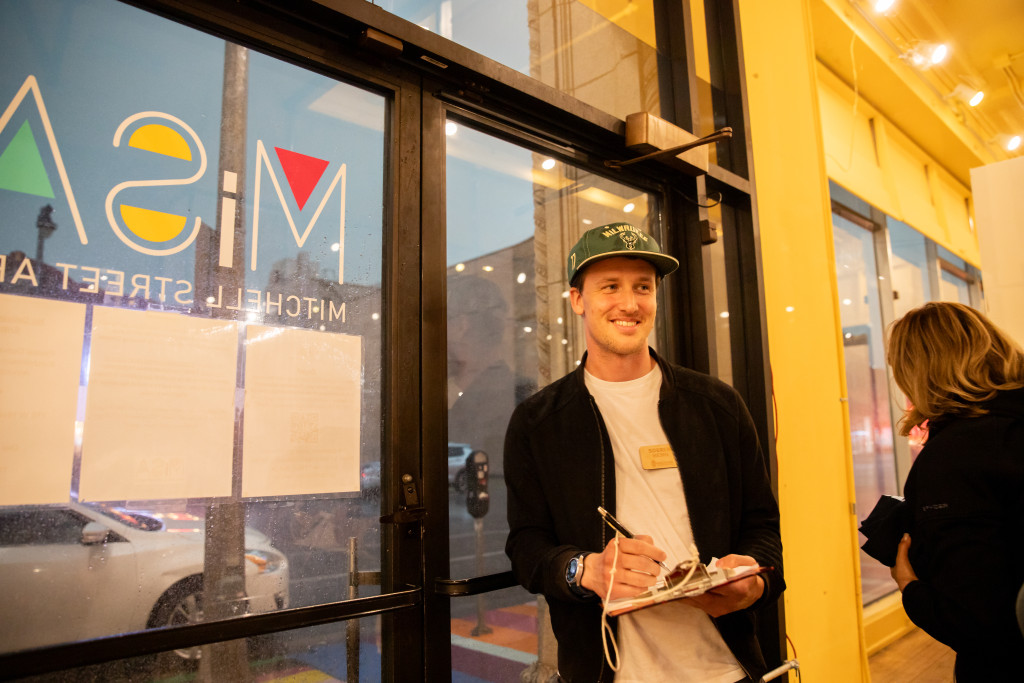
Soeren Helm, an assistant professor of political science, checks off names as seminar participants board the bus. Photo by Catherine Reiland/UW-Madison
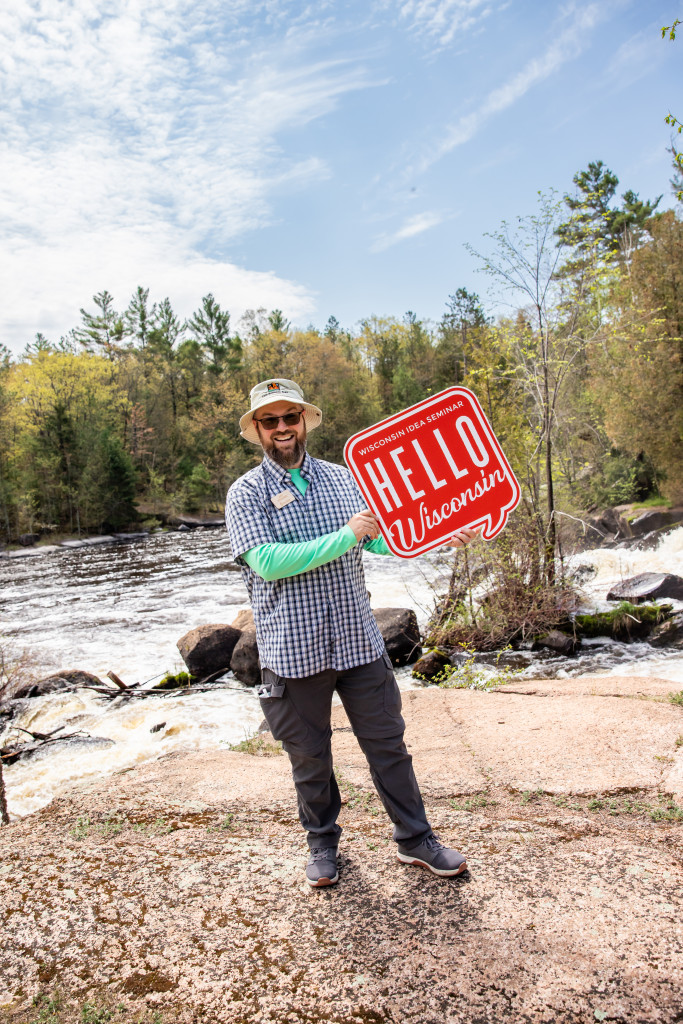
Jay Stokes, who grew up in Milwaukee and is the program manager for the King-Morgridge Scholars Program, holds the “Hello Wisconsin” sign at Big Smokey Falls in the Menominee Reservation, where the Wolf River drops 20 feet. “I have a new appreciation for the Wisconsin Idea," Stokes says. "I now understand it. I can explain it. I believe in it. I will live it and take it to the world.” Photo by Catherine Reiland/UW-Madison
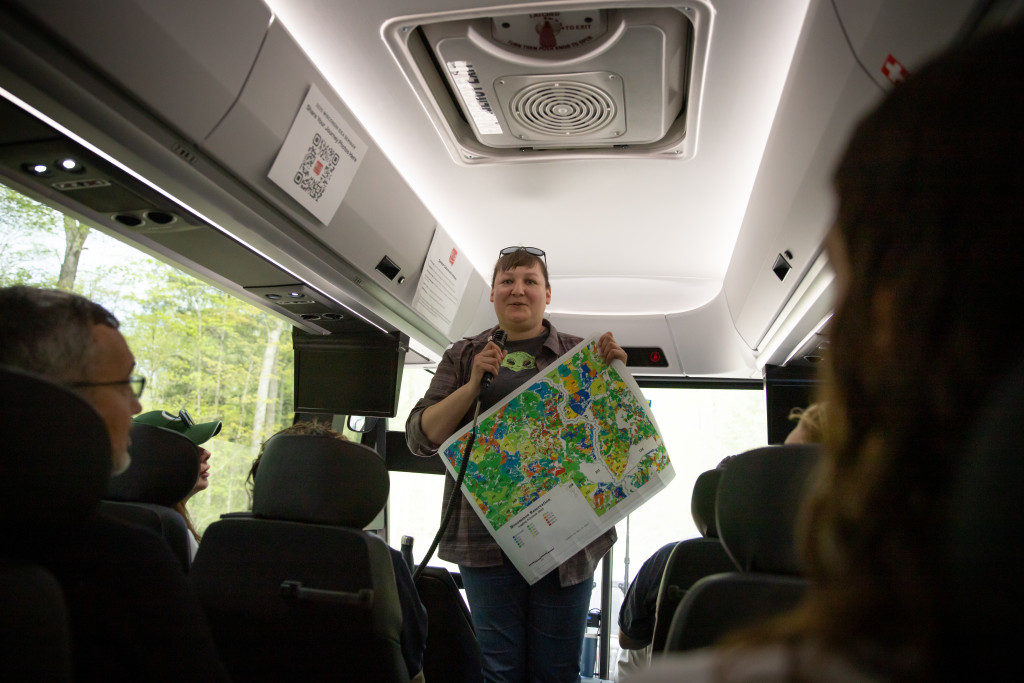
McKaylee Duquain, a 2015 UW-Madison alumna (forest science) and an enrolled member of the Menominee Nation who runs the forest inventory at the Menominee Tribal Enterprises, holds up a map of the logging schedule that charts out five decades into the future. Duquain and colleagues led the Wisconsin Idea Seminar participants to a forest stand and a natural spring. Menominee Tribal Enterprises, a collaborator of the 2025 Wisconsin Idea Seminar, manages 235,000 acres of forest that covers ninety percent of the reservation. Photo by Catherine Reiland/UW-Madison
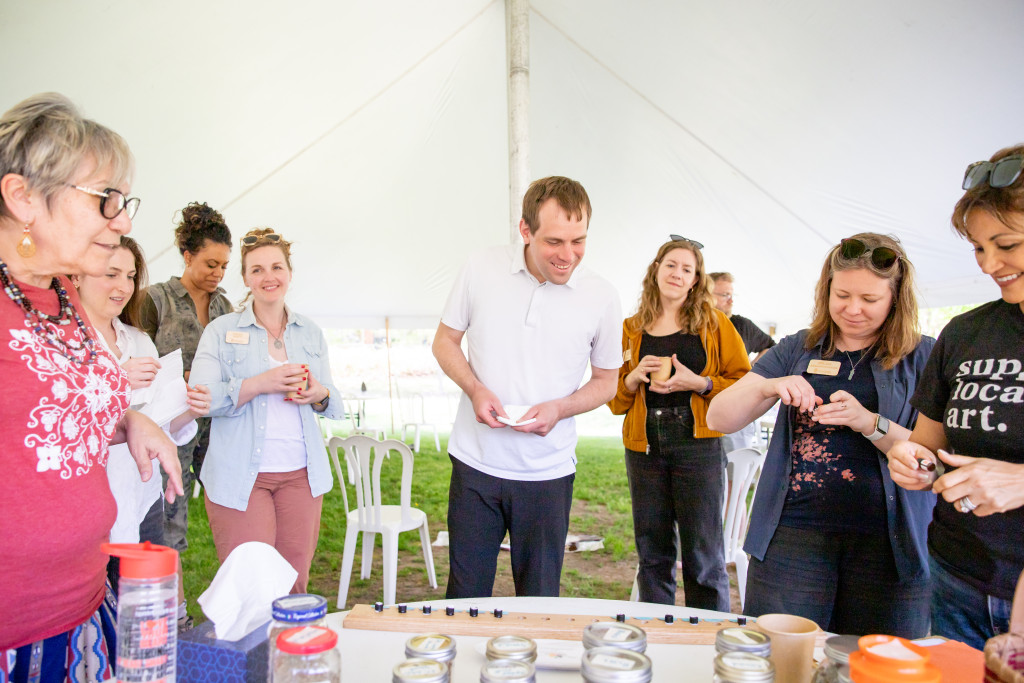
Chemical and biological engineeering professor Marcel Schreier explores a panoply of plant-based ingredients during a hands-on workshop led by Bonnie McKiernan, an educator and Menominee Nation elder. McKiernan integrated themes of gratitude and explained how plants can help people return to their senses and renew their connections to land and water. Photo by Catherine Reiland/UW-Madison
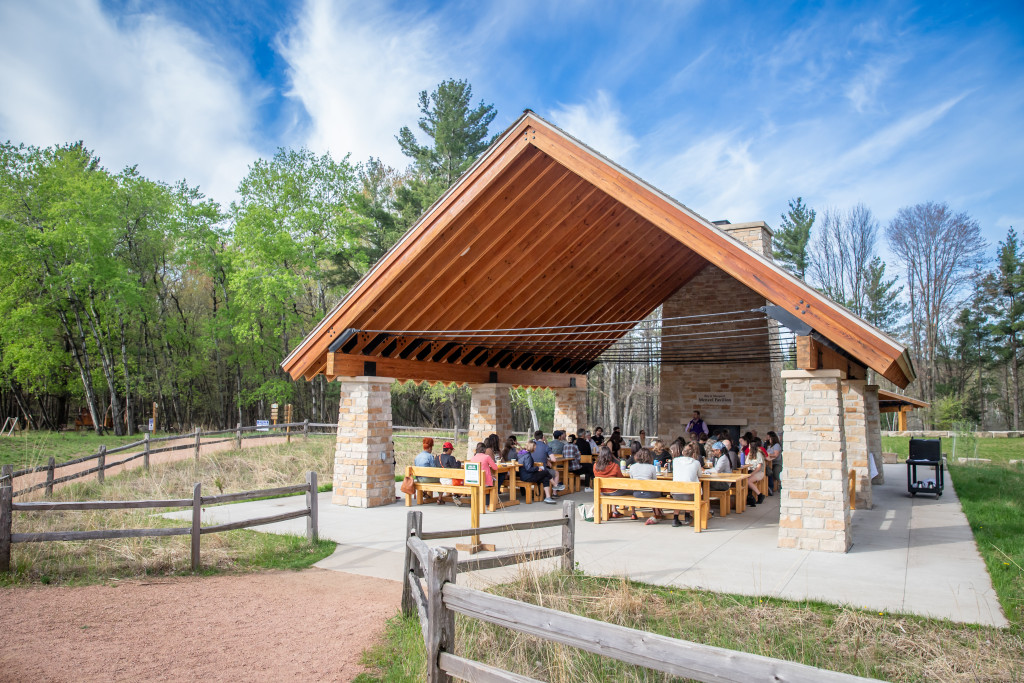
Wisconsin Idea Seminar participants met with UW-Stevens Point colleagues at the Roy and Margaret Menzel Pavilion, part of the Green Circle Trailhead, to learn about how they have developed a reputation as a national leader in water and forest research and the ways they mobilize community engagement in research, undergraduate education, and service. Photo by Catherine Reiland/UW-Madison
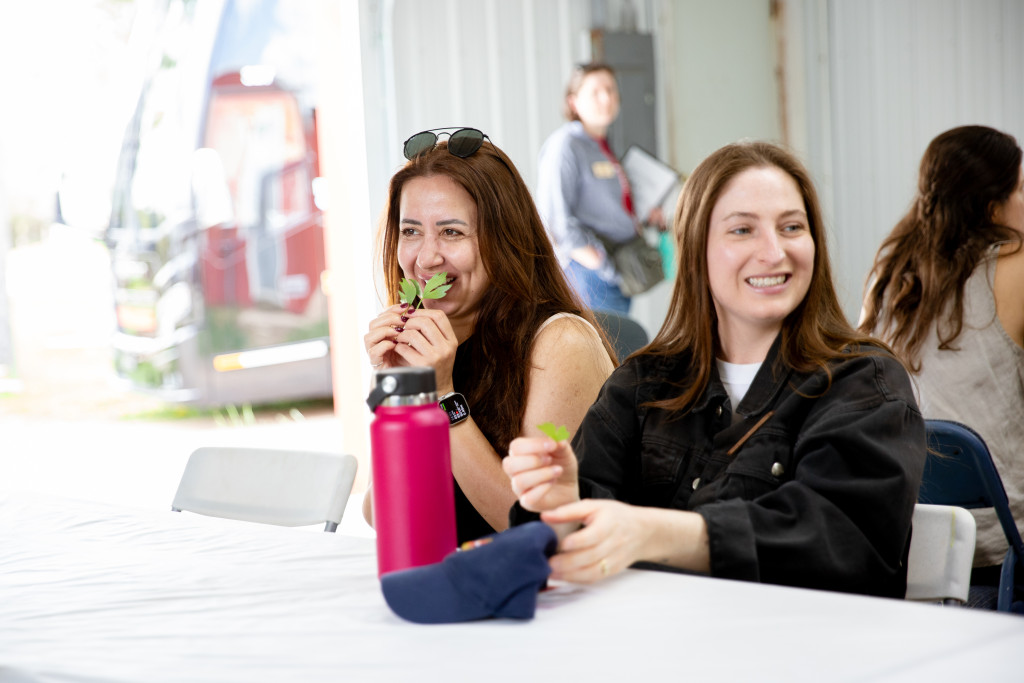
During an herb workshop at GreenGold Gardens in rural Wausau, food science professor Gulustan Ozturk and social work professor Celina Doria learn about the culinary uses of lovage and its celery-like flavor. The herb workshop was led by Gaonou Thao, the Hmong/Hmoob Farm Outreach Specialist in the Division of Extension, to introduce the herbs and flavor profiles of many Hmong traditional dishes. "Throughout the Wisconsin Idea Seminar, every place we visited felt incredibly welcoming," Ozturk says. "In the people we met, I found a spirit of connection—it felt like discovering pieces of home across the state. It reminded me that love and community can be found everywhere.” Photo by Catherine Reiland/UW-Madison
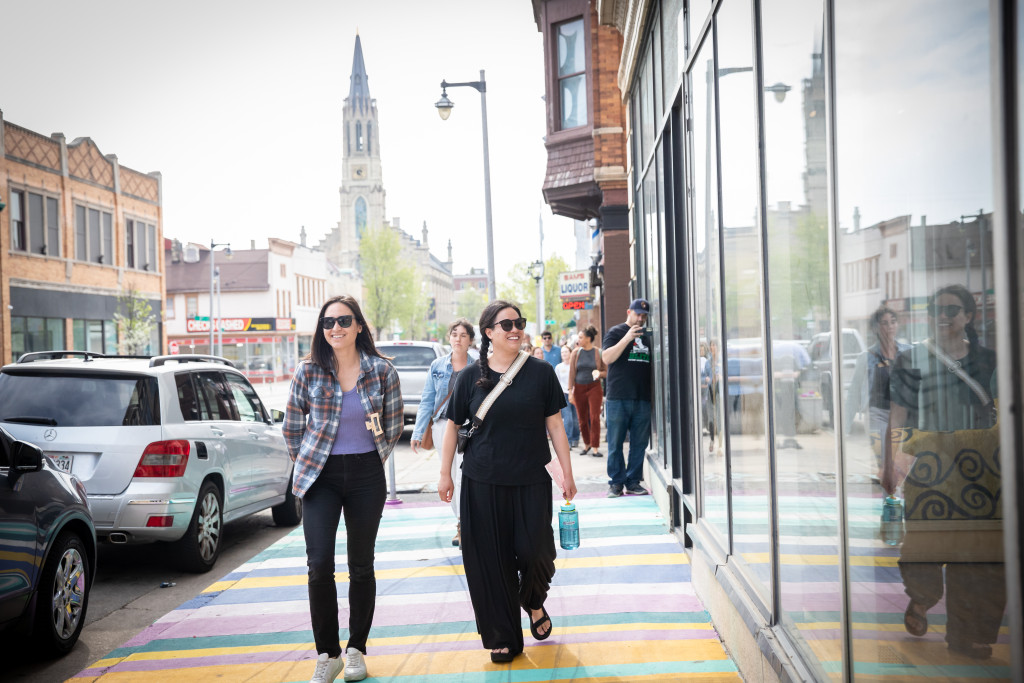
Chemical and biological engineering professor Whitney Loo, left, walks along Historic Mitchell Street in Milwaukee with gender and women's studies and Asian-American studies professor Rachel Kuo on their way to the entrance of Mitchell Street Arts. Underfoot are the vibrant stripes of a sidewalk sarape mural by artist Adam Correa. Photo by Catherine Reiland/UW-Madison
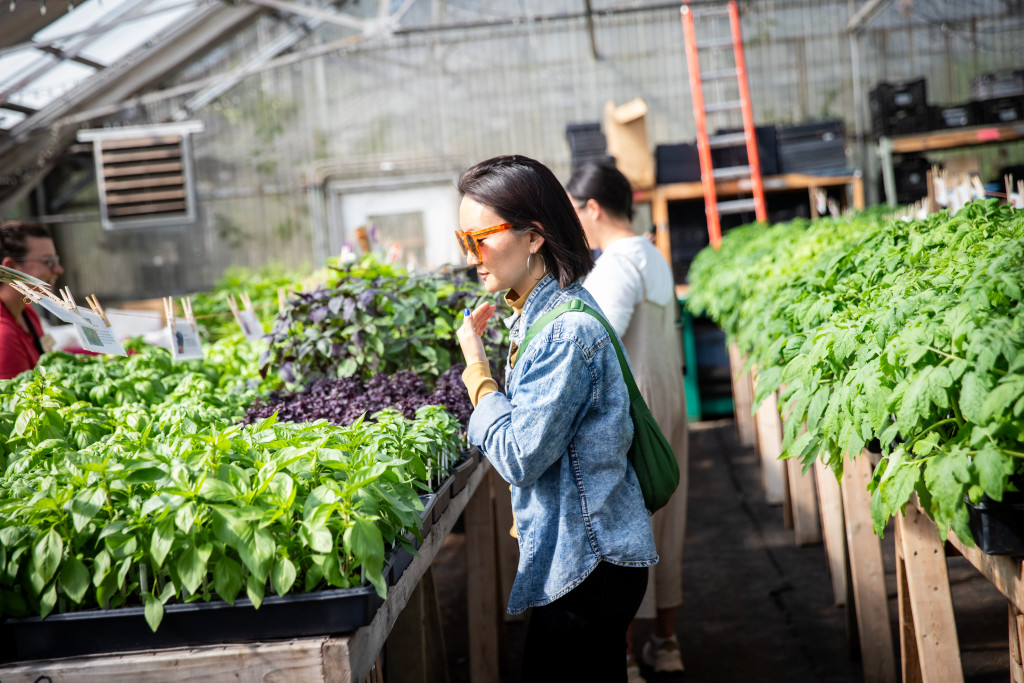
At Stevens Point’s Farmshed greenhouse, design studies professor Esther Kang wafts the aroma of basil grown by volunteers that make up the Growing Collective. Photo by Catherine Reiland/UW-Madison
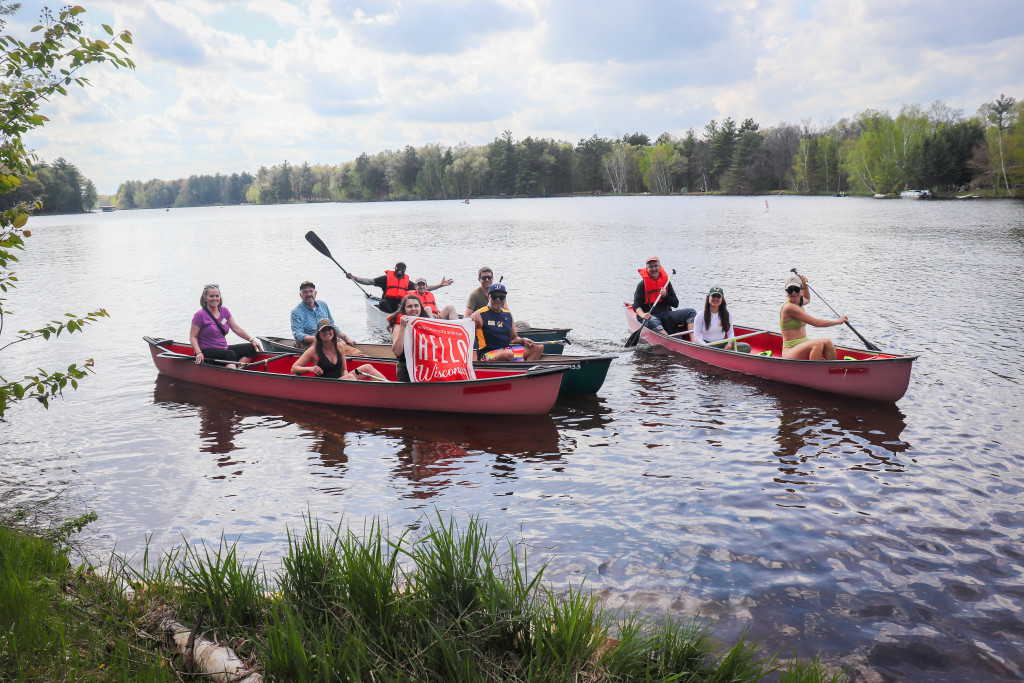
Wisconsin Idea Seminar participants pause their paddle for a group photo at Legend Lake during a water workshop led by Marla Mahkimetas, a Menominee water educator and artist. Photo by Rachel Niles/UW-Madison
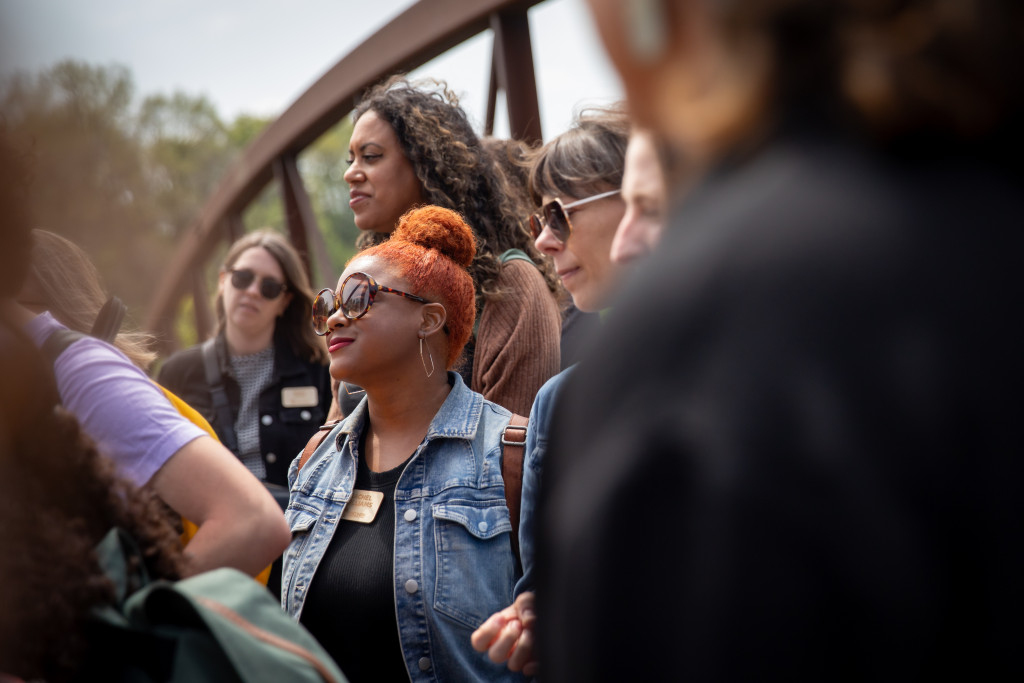
Educational policy studies professor Rachel Williams, center, listens as Jeremy Ault, an advisor at Escuela Verde who specializes in special education, explains the role the Menomonee River plays in the ecological curriculum of his school. Photo by Catherine Reiland/UW-Madison
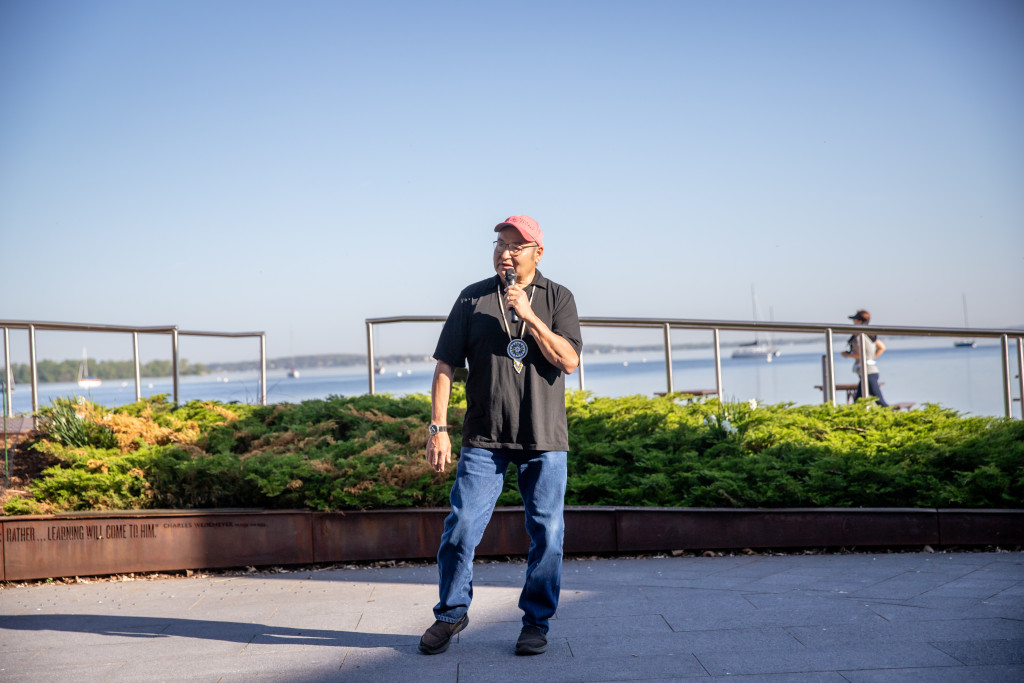
Lake Mendota is a tranquil blue behind Bill Quackenbush, tribal historic preservation officer of the Ho-Chunk Nation, as he greets the 2025 Wisconsin Idea Seminar cohort in the outdoor classroom in Alumni Park and describes the millennia of human presence in Teejop, the place now known as Madison. Photo by Catherine Reiland/UW-Madison
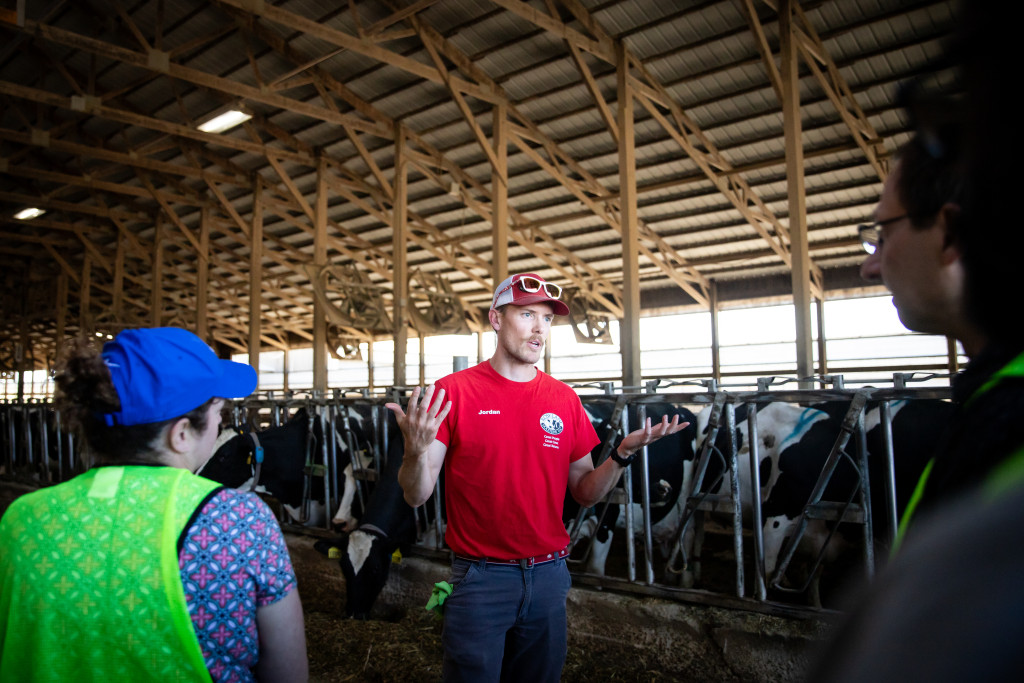
Jordan Matthews, a partner at Rosy-Lane Holsteins, and a UW-Madison alum, points out the ventilation systems and strategies to optimize cow comfort and well-being inside a barn. Rosy-Lane Holsteins, located outside of Watertown, has hosted the Wisconsin Idea Seminar twice before, in 1993 and 2019, and collaborates with UW-Madison on several research studies. Photo by Catherine Reiland/UW-Madison
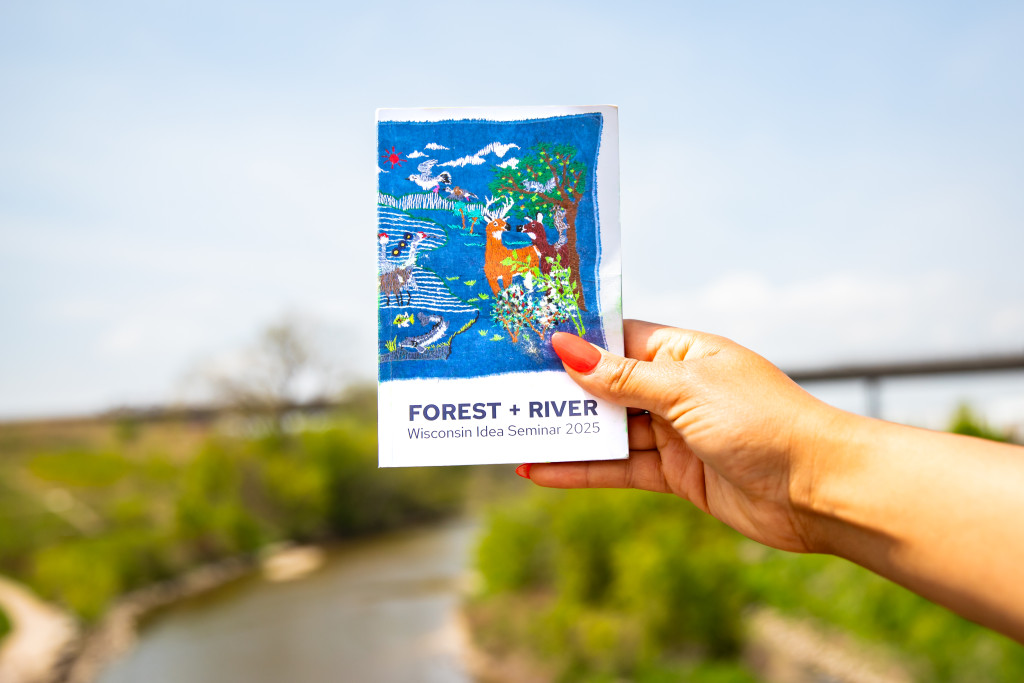
Milwaukee’s Menomonee River serves as a backdrop as African-American studies professor Jessie Stovall holds up the “Forest + River" journey book, an informative collection of essays, maps, daily itineraries, and other materials that the Wisconsin Idea Seminar participants carried on their 5-day experience. The cover features “Threaded Rivers” a story cloth by Edward Xiong, a UW-Madison undergraduate student and Hmoob Paj Ntaub artist, that was inspired by Xiong’s formative memories of foraging with his family in forested areas outside Milwaukee where he grew up. Photo by Catherine Reiland/UW-Madison
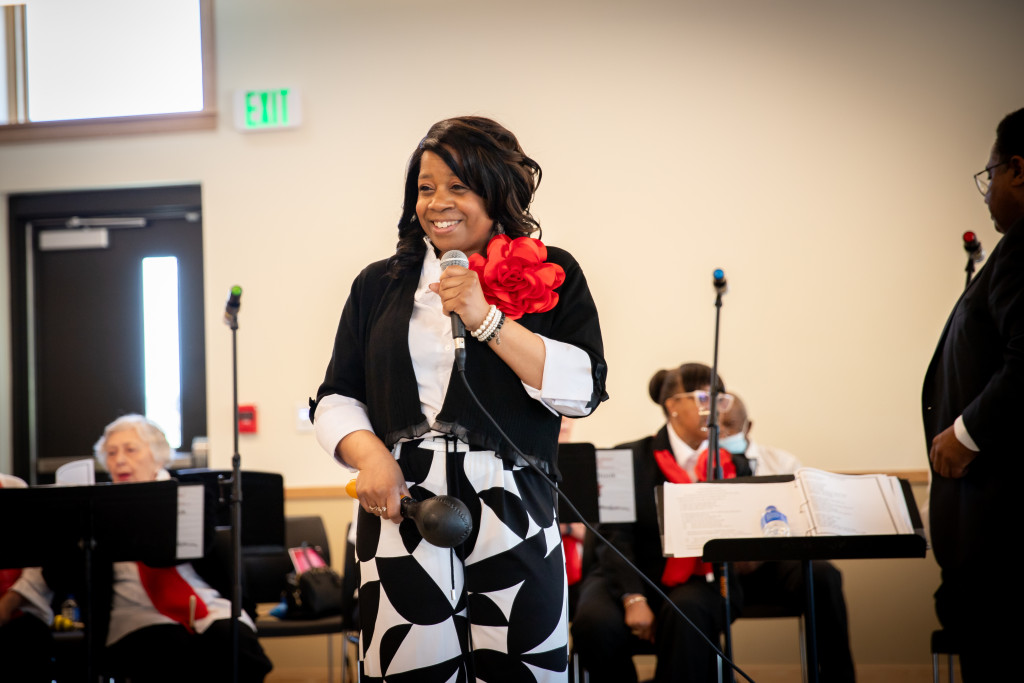
Stephanie Houston, a senior outreach program coordinator for UW-Madison’s Wisconsin Alzheimer's Institute, introduces the Amazing Grace Chorus. Houston manages comprehensive care programming of the Wisconsin Alzheimer's Institute by providing short-term case management assistance to cognitively impaired and medically underserved African American older adults in Milwaukee County. Photo by Catherine Reiland/UW-Madison
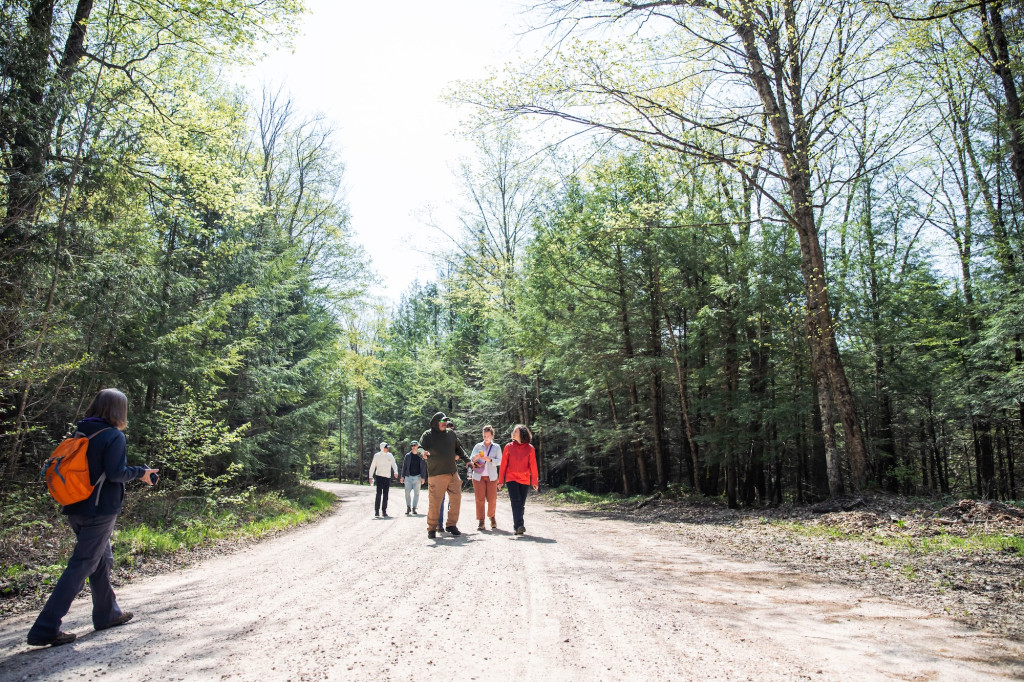
Ron Waukau, a forest manager for Menominee Tribal Enterprises, walks with a handful of Wisconsin Idea Seminar participants during a visit to managed forests and natural spring in the Menominee Reservation. Photo by Catherine Reiland/UW-Madison




